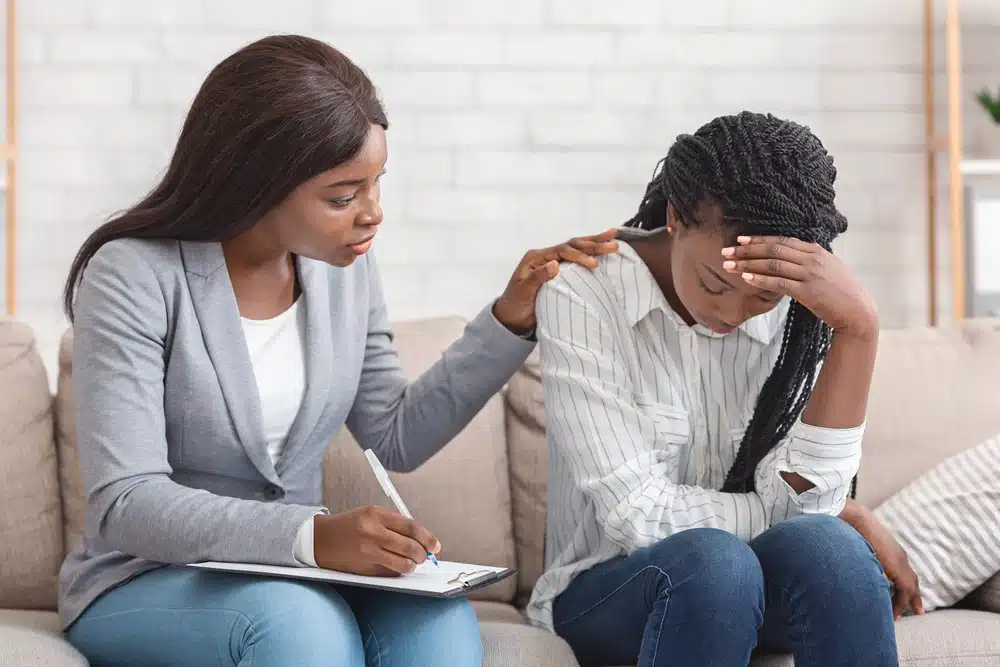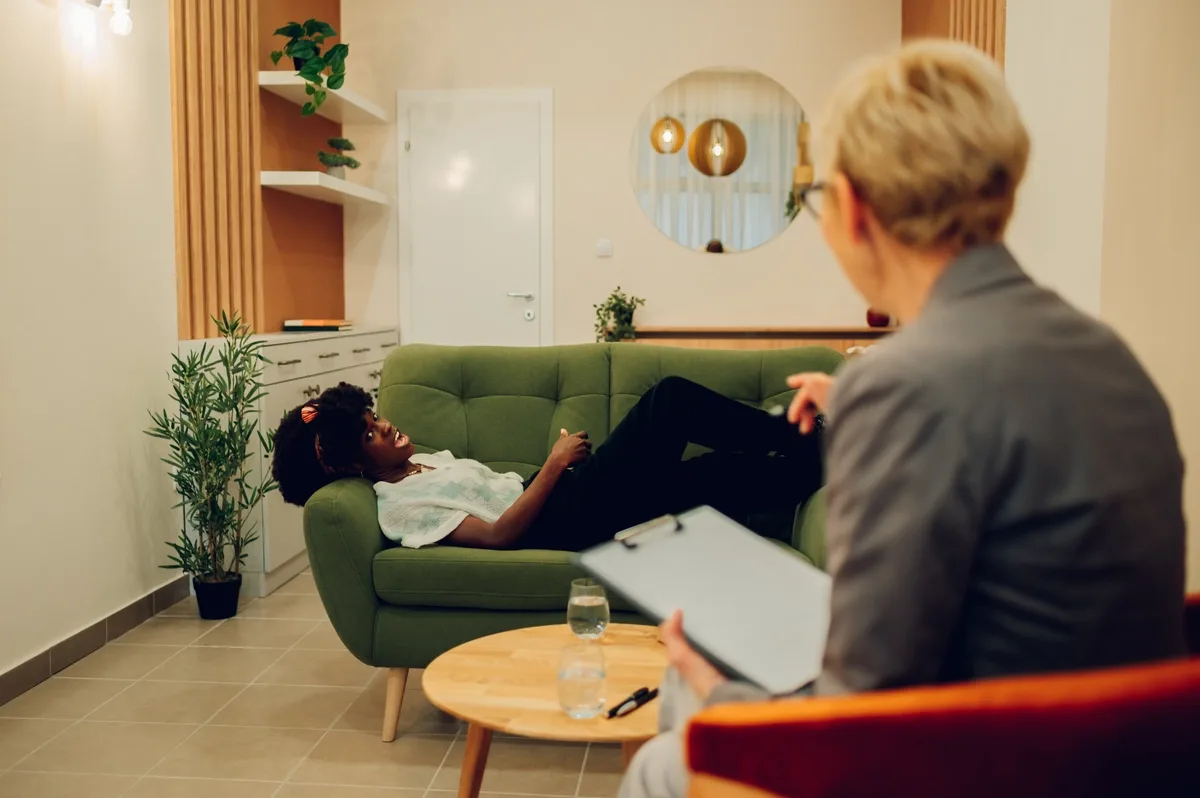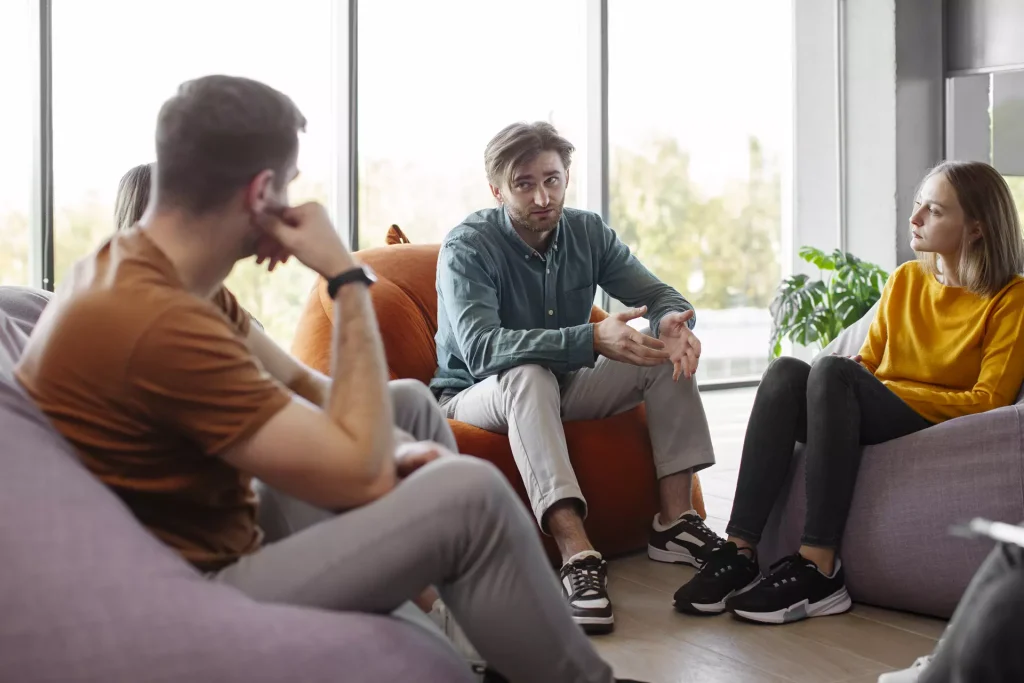24/7 Helpline:
(866) 899-221924/7 Helpline:
(866) 899-2219
Learn more about Couples Rehab centers in East Baton Rouge County
Couples Rehab in Other Counties

Other Insurance Options

BlueShield

Humana

Optum

Excellus

Providence

PHCS Network

Molina Healthcare

Sutter

Private insurance

Anthem

ComPsych

Optima

Access to Recovery (ATR) Voucher

Ceridian

Regence

Cigna

Multiplan

EmblemHealth

Magellan

UMR

St. Christopher’s Addiction Wellness Center
St. Christopher’s Addiction Wellness Center (STC), nestled in Baton Rouge, Louisiana, is an accredit...

Alcohol and Drug Center
Alcohol and Drug Center is a private rehab located in Baton Rouge, Louisiana. Alcohol and Drug Cente...

Legacy Behavioral Health
Legacy Behavioral Health is a private rehab located in Baton Rouge, Louisiana. Legacy Behavioral Hea...

Capital Area Human Services
Capital Area Human Services is an outpatient facility that offers treatment for individuals with a M...

Oceans Behavioral Hospital
Oceans Behavioral Hospital is a private rehab located in Baton Rouge, Louisiana. Oceans Behavioral H...

Woodlake Addiction Recovery
Woodlake Addiction Recovery is a public rehab located in Baton Rouge, Louisiana. Woodlake Addiction ...

AppleGate Recovery
AppleGate Recovery is a private rehab located in Baton Rouge, Louisiana. AppleGate Recovery speciali...

Baton Rouge Behavioral Hospital
Baton Rouge Behavioral Hospital focuses on providing care for those with mental illnesses & dual dia...

O’Brien House
O'Brien House provides residential treatment, an Intensive Outpatient Program (IOP), outpatient prog...

21st CARE – Intensive Outpatient
21st CARE – Intensive Outpatient is a private rehab located in Baton Rouge, Louisiana. 21st CARE – I...

Eugene and Oleander – Opiate Recovery Solutions
Eugene and Oleander – Opiate Recovery Solutions is a private rehab located in Baton Rouge, Louisiana...

Capital Area Recovery Program
Located in Baton Rouge, Louisiana, Capital Area Recovery Program provides alcohol and drug rehab ser...

Woodlake Addiction Recovery Center
The Woodlake Addiction Recovery Center focuses on helping adults from all walks of life overcome dru...
Beacon Behavioral Health
Beacon Behavioral Health is a private rehab located in Baton Rouge, Louisiana. Beacon Behavioral Hea...

Lane Regional Medical Center – Behavioral Health Services
Lane Regional Medical Center - Behavioral Health Services, located in Zachary, Louisiana, provides b...

AMIkids
AMIkids is a non-profit organization located in Baton Rouge, Louisiana AMIkids provides counseling f...

Townsend Recovery Center
Townsend Recovery Center offers outpatient treatment for individuals with alcohol and/or substance a...

The Serenity Center of Louisiana
The Serenity Center of Louisiana provides high quality Chemical Dependency Treatment. The Serenity o...

LHRC – Pocahontas House
LHRC - Pocahontas House provides quality, comprehensive treatment to functionally homeless substance...

Jefferson Oaks Behavioral Health
Jefferson Oaks Behavioral Health located in Jefferson Highway's beautiful Bocage area, is a privatel...

Mental Health Association – Alliance House Residential Center
Mental Health Association - Alliance House Residential Center is a transitional living facility for ...




























LA Health and Rehab Center – Reality House
LA Health and Rehab Center - Reality House is a non - profit rehab located in Baton Rouge, LA. LA He...

Family Services – Alcohol and Drug Counseling
Family Services – Alcohol and Drug Counseling is a private rehab located in Baton Rouge, Louisiana. ...

Cenikor
Cenikor provides a variety of services for substance abuse and behavioral health issues. Their servi...

Century Rehabilitation
Century Rehabilitation is a private rehab located in Baton Rouge, Louisiana. Century Rehabilitation ...

Bannister Counseling and Probation Services
Bannister Counseling and Probation Services is a private rehab located in Baton Rouge, Louisiana. Ba...

New Hope Outpatient Substance Abuse Clinic
New Hope Outpatient Substance Abuse Clinic provides outpatient and intensive outpatient treatment fo...

Intensive Adolescent Groups
Intensive Adolescent Groups is a private rehab located in Baton Rouge, Louisiana. Intensive Adolesce...

Margaret Dumas Mental Health Center
Margaret Dumas Mental Health Center is an outpatient facility that offers treatment for individuals ...

Salvation Army – The Corps Recovery Center
Salvation Army is a non-profit rehab located in Baton Rouge, LA. Salvation Army specializes in the t...






























